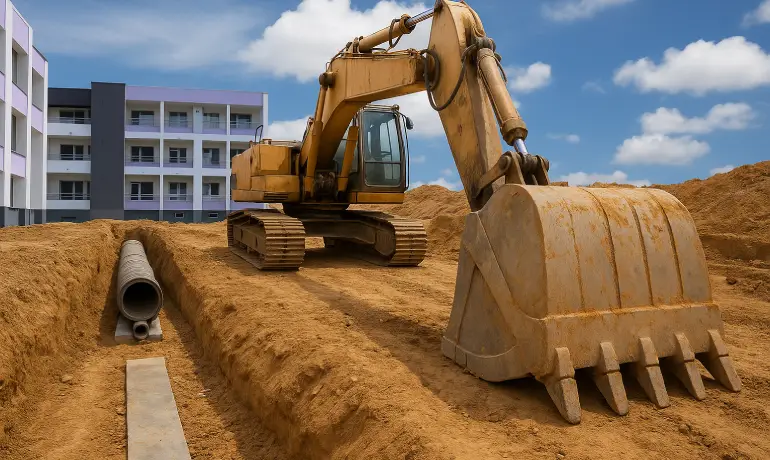Malcolm Spalding
The work was to make a sewer connection to one of our buildings. AFS were patient, helpful and professional throughout. Special thanks to Dan Ford and Steve for an excellent job.
We provide reliable commercial drainage services for businesses, retail units, industrial sites, commercial kitchens, property managers and facilities teams. From large-scale blockages and pump failures to CCTV surveys, pipe repairs, installations, maintenance contracts and compliance works — our commercial engineers handle issues quickly, safely and professionally.
Emergency Services & Enquiries
Real feedback from homeowners and businesses across Hampshire, Surrey & West Sussex.
Our fully accredited engineers are ready to assist 24/7.
Emergency Services & Enquiries

Commercial drainage issues can lead to downtime, safety risks, compliance failures and expensive disruption if not resolved quickly. Our engineers use CCTV drain surveys to identify faults, locate structural problems, clear obstructions and recommend the most cost-effective long-term solution. Whether it's a collapsed sewer, grease-clogged kitchen line, root ingress, or a major industrial blockage, we resolve issues efficiently and safely.
We support all commercial sectors including retail, restaurants, hospitality, warehouses, industrial units, schools, care homes, offices, landlords and local authorities. Services include blocked drain clearance, drain repairs, drain relining, drain installations, pump station maintenance, grease management systems and full commercial drainage support.
Businesses typically request commercial drainage services for issues such as:
For urgent business disruption, we also provide 24/7 emergency drainage to restore flow and ensure operational continuity.
Our structured commercial drainage process ensures accurate diagnosis, fast resolution and compliance with commercial standards:
Every commercial drainage service includes a clear report, findings, compliance notes and recommendations to prevent future business disruption.
If drainage issues are affecting your business, causing downtime or creating health and safety risks, our commercial engineers respond quickly to identify and fix the problem.
We support urgent commercial drainage issues including internal flooding, external overflows, severe blockages, grease-line failures, pump faults and collapsed systems.
Our commercial drainage services include blocked drain clearance, CCTV diagnostics, high-pressure jetting, pipe repairs, drain relining, new installations, pump station servicing, grease trap systems, interceptor cleaning and full commercial maintenance contracts.
We use industry-leading technology and proven commercial repair methods to restore full drainage function while minimising business downtime.
We support all business types including retail units, restaurants, industrial sites, offices, care homes, schools, commercial kitchens, rental portfolios and local authorities. You can also explore related services including blocked drains, CCTV surveys, drain repairs, pump stations and grease management.
To book commercial drainage services, call 01420 561661 or complete our online enquiry form. Fast response available for all business sectors.
ReliableProfessional24/7 Support